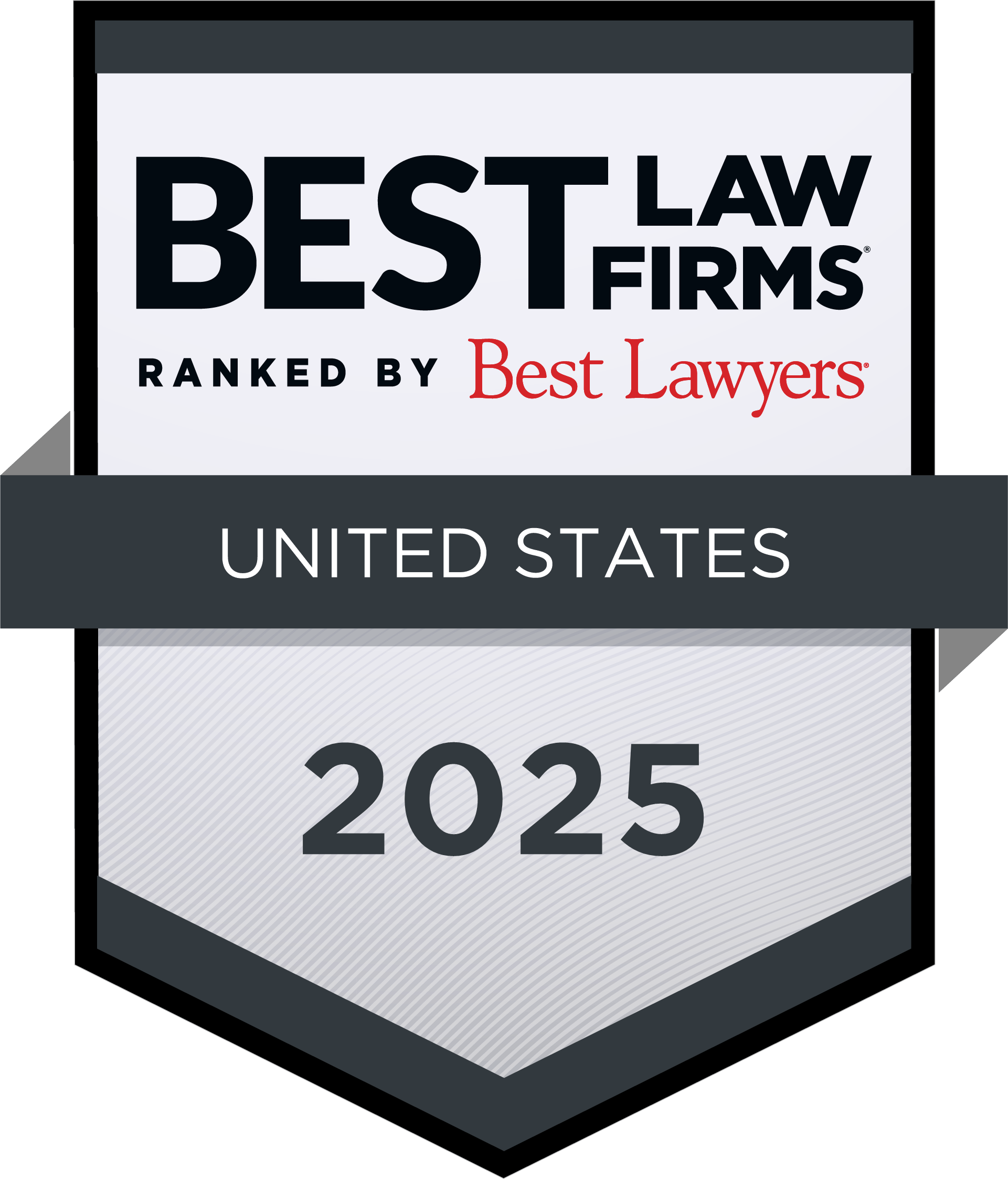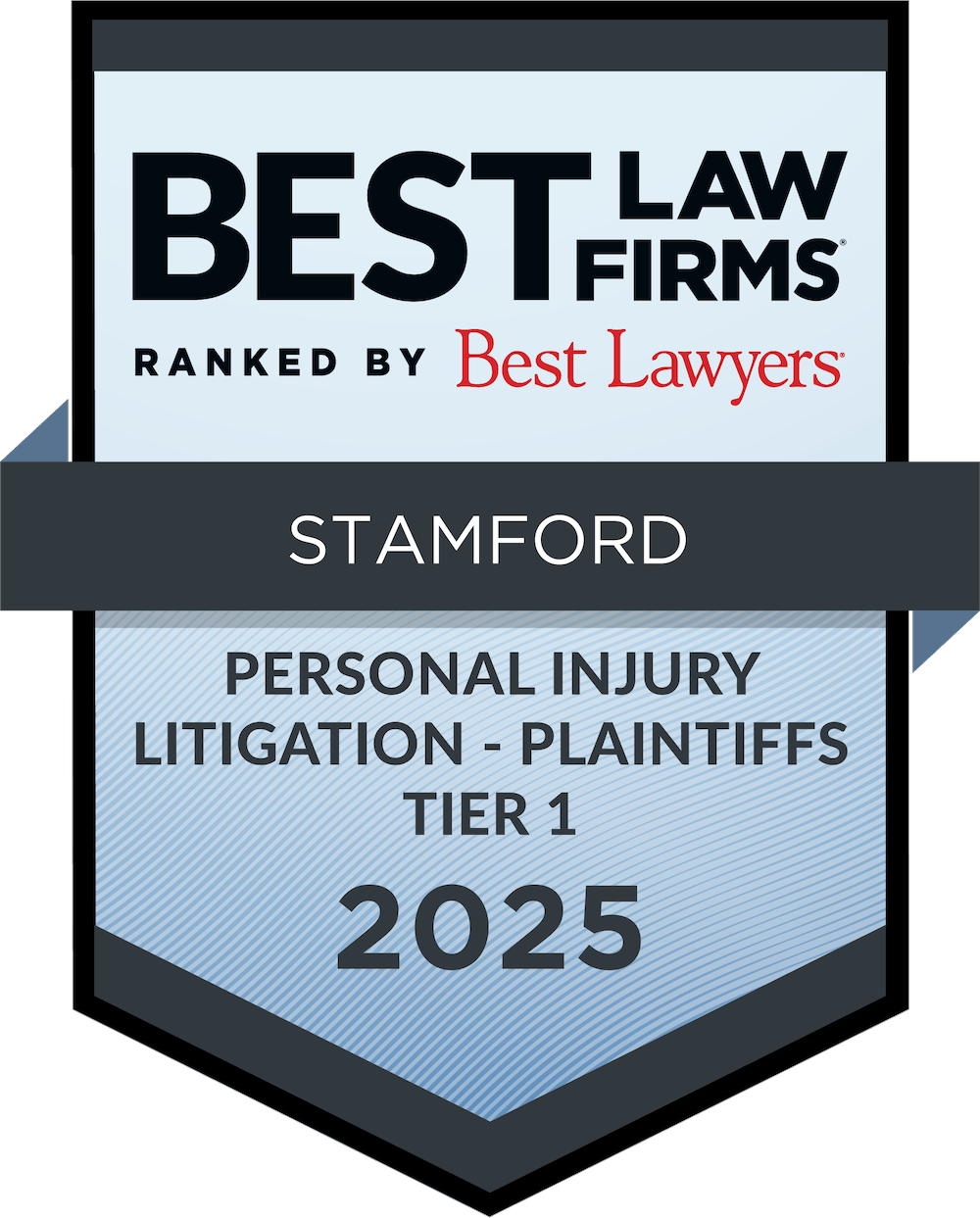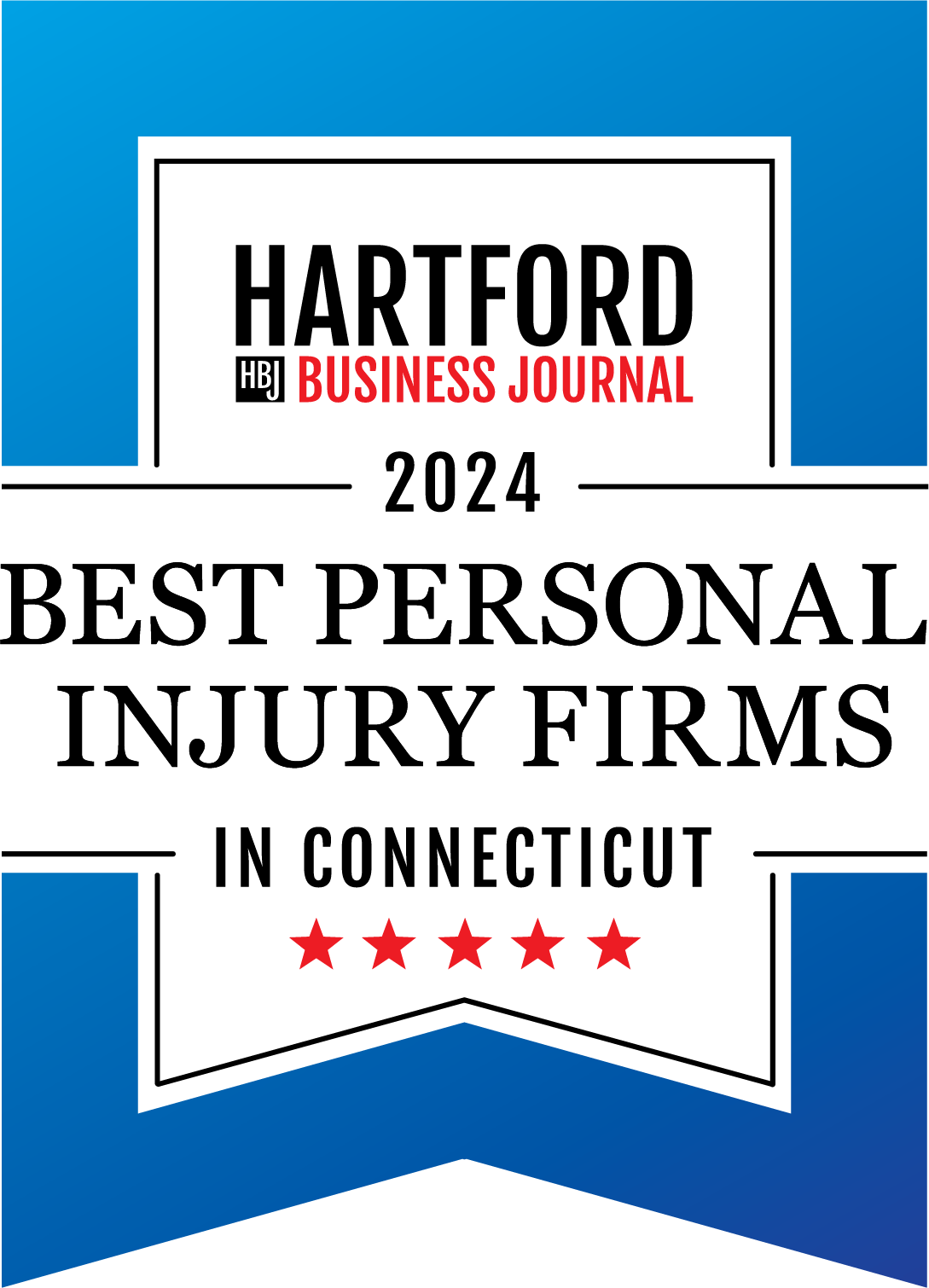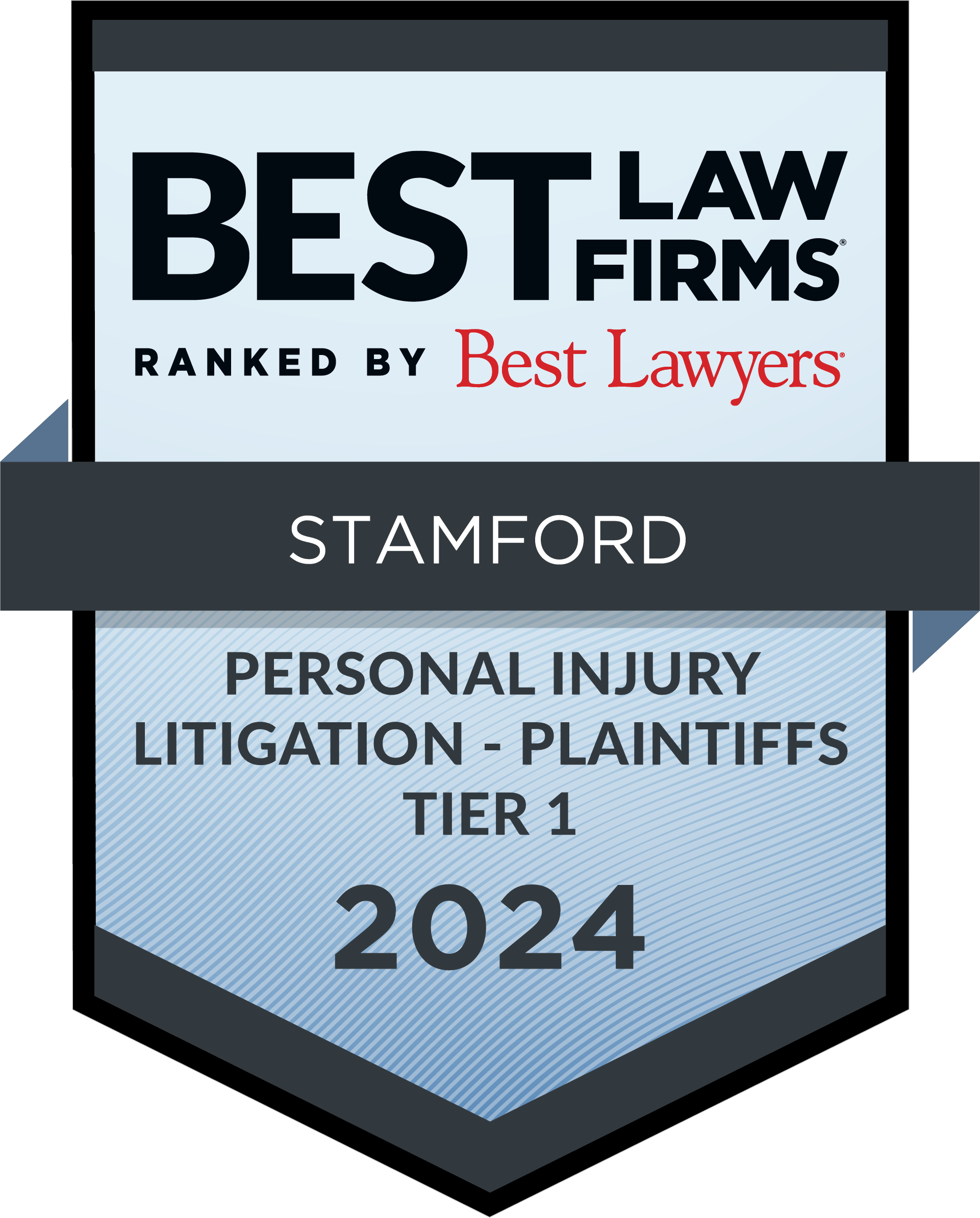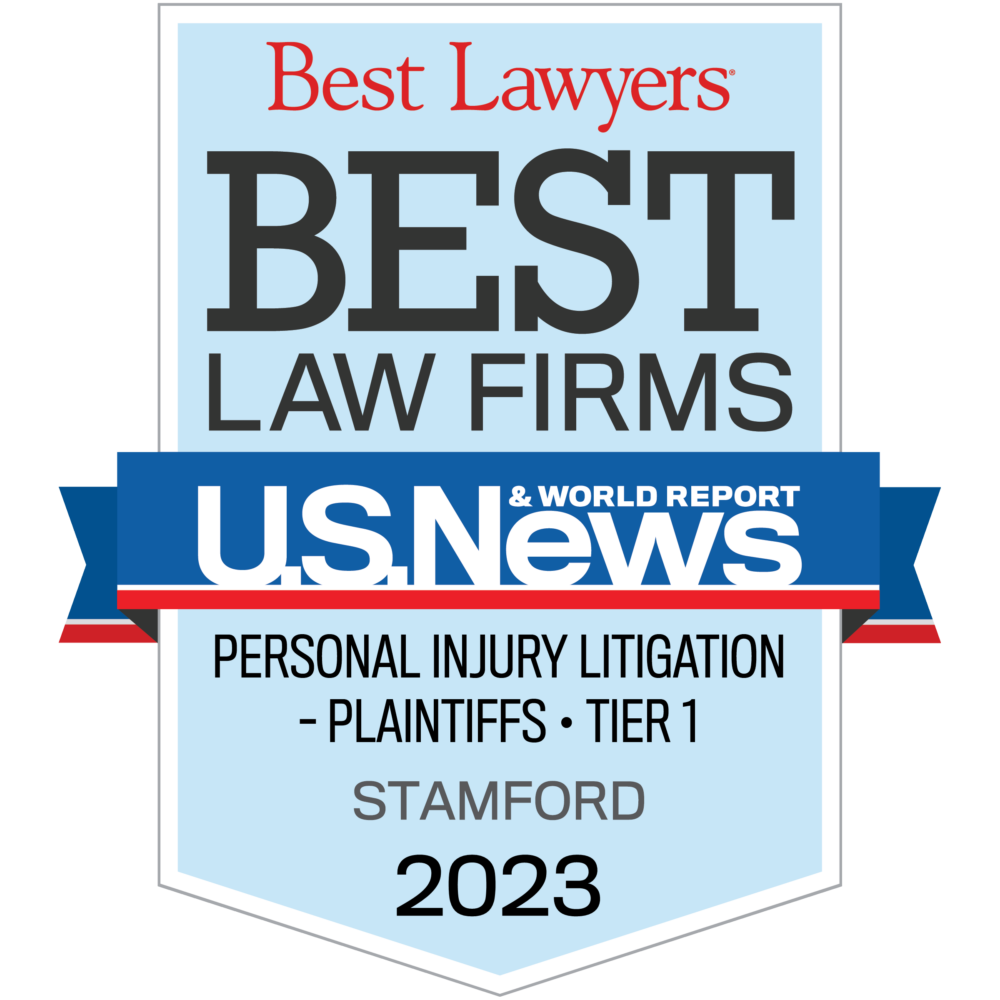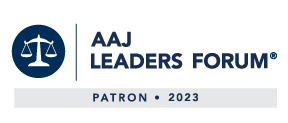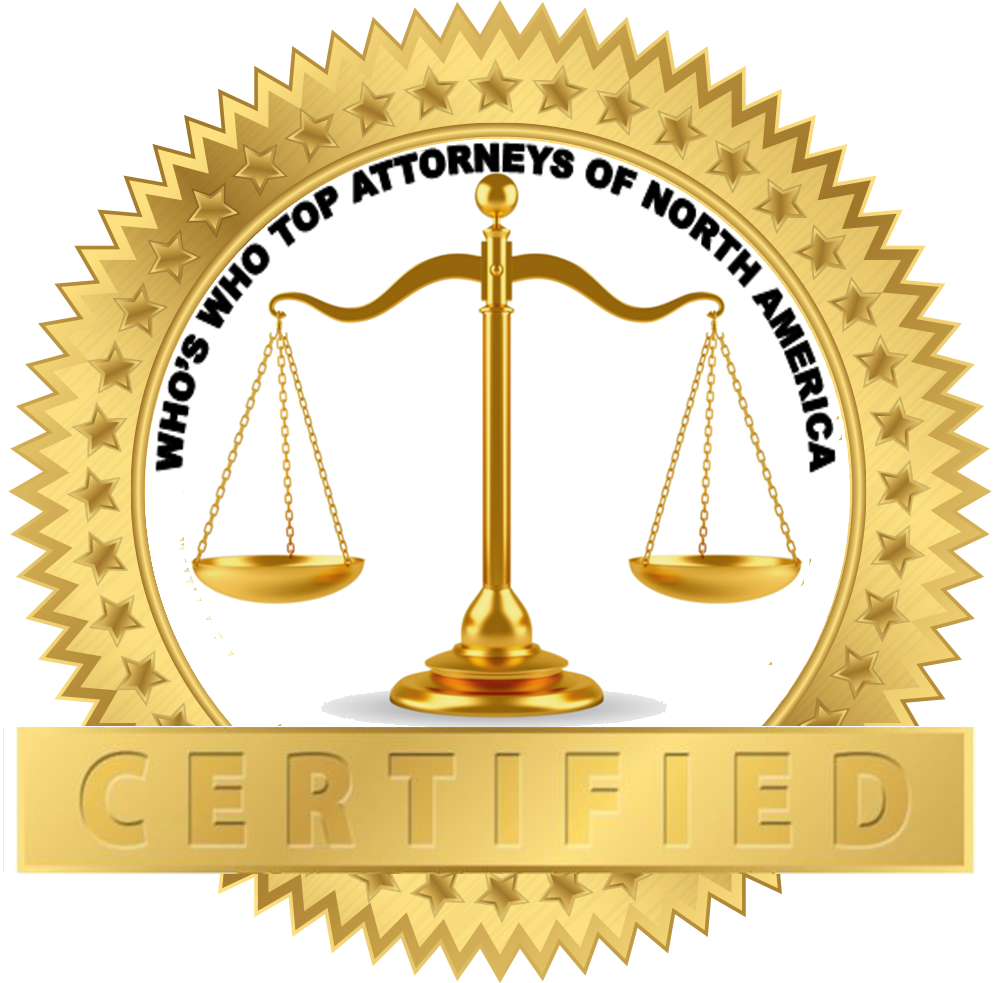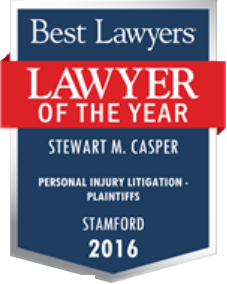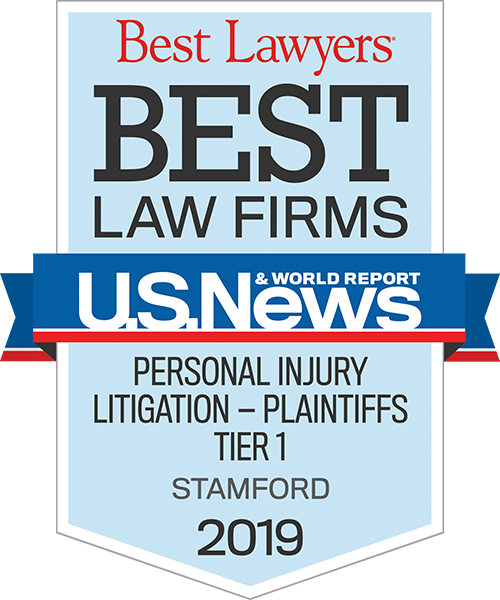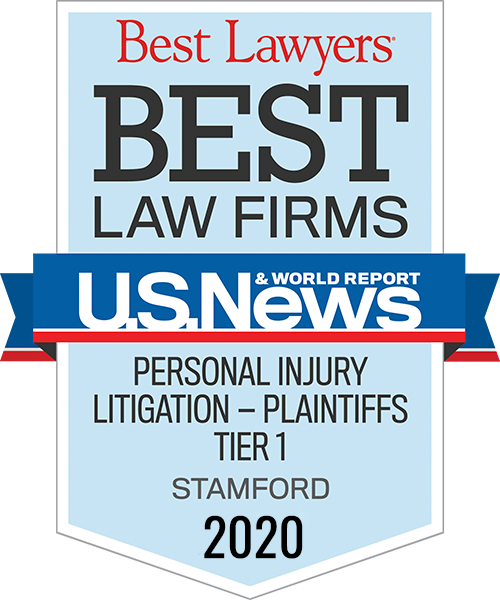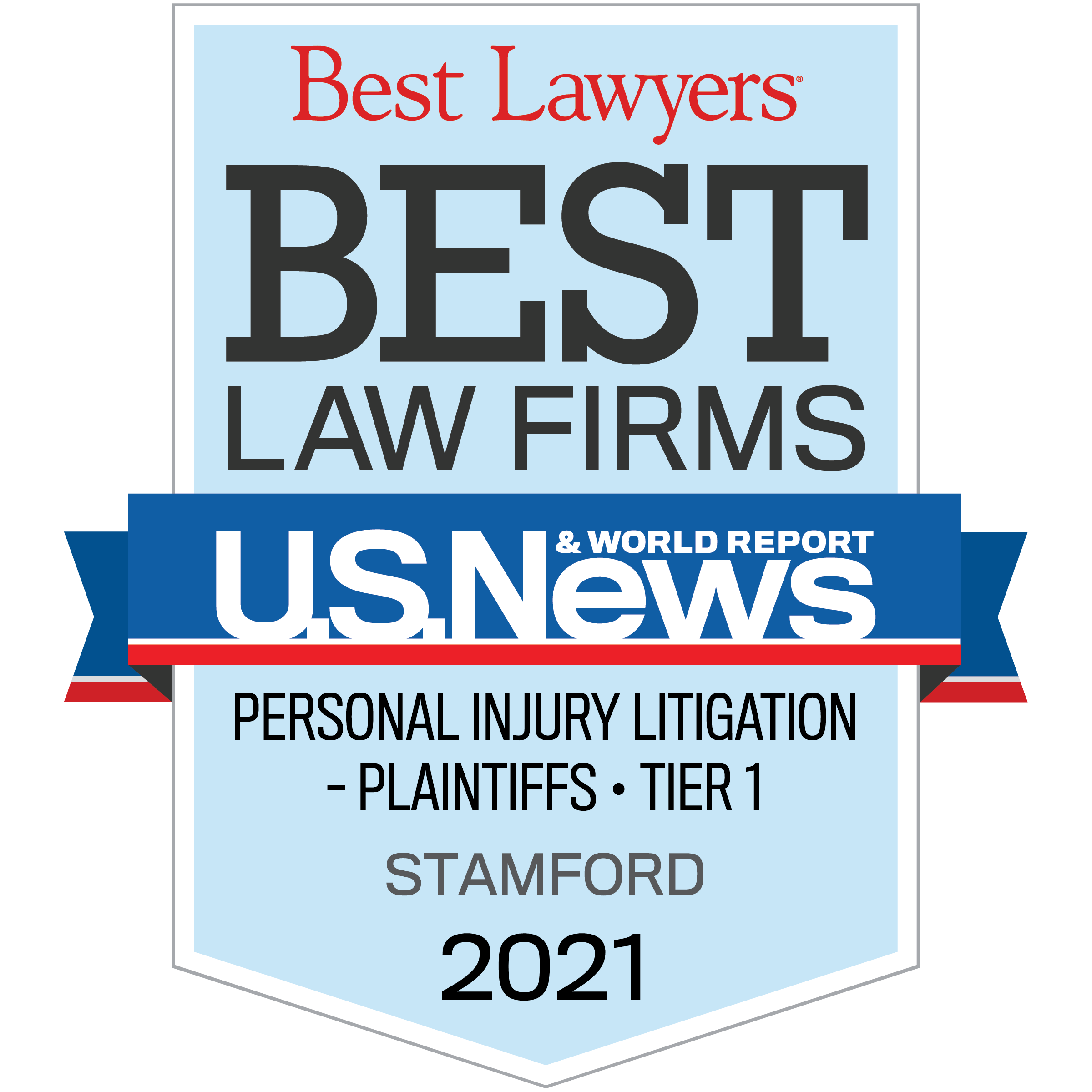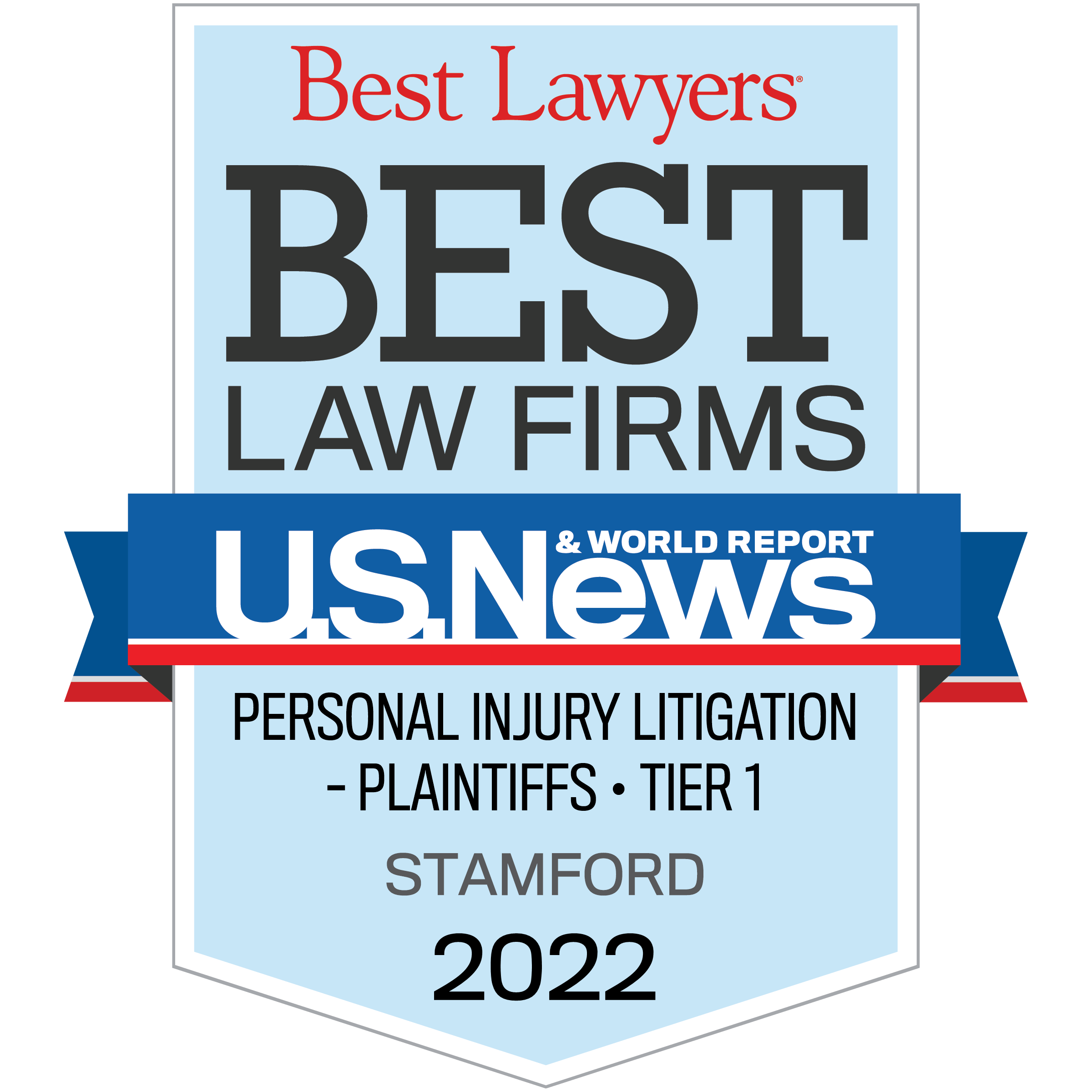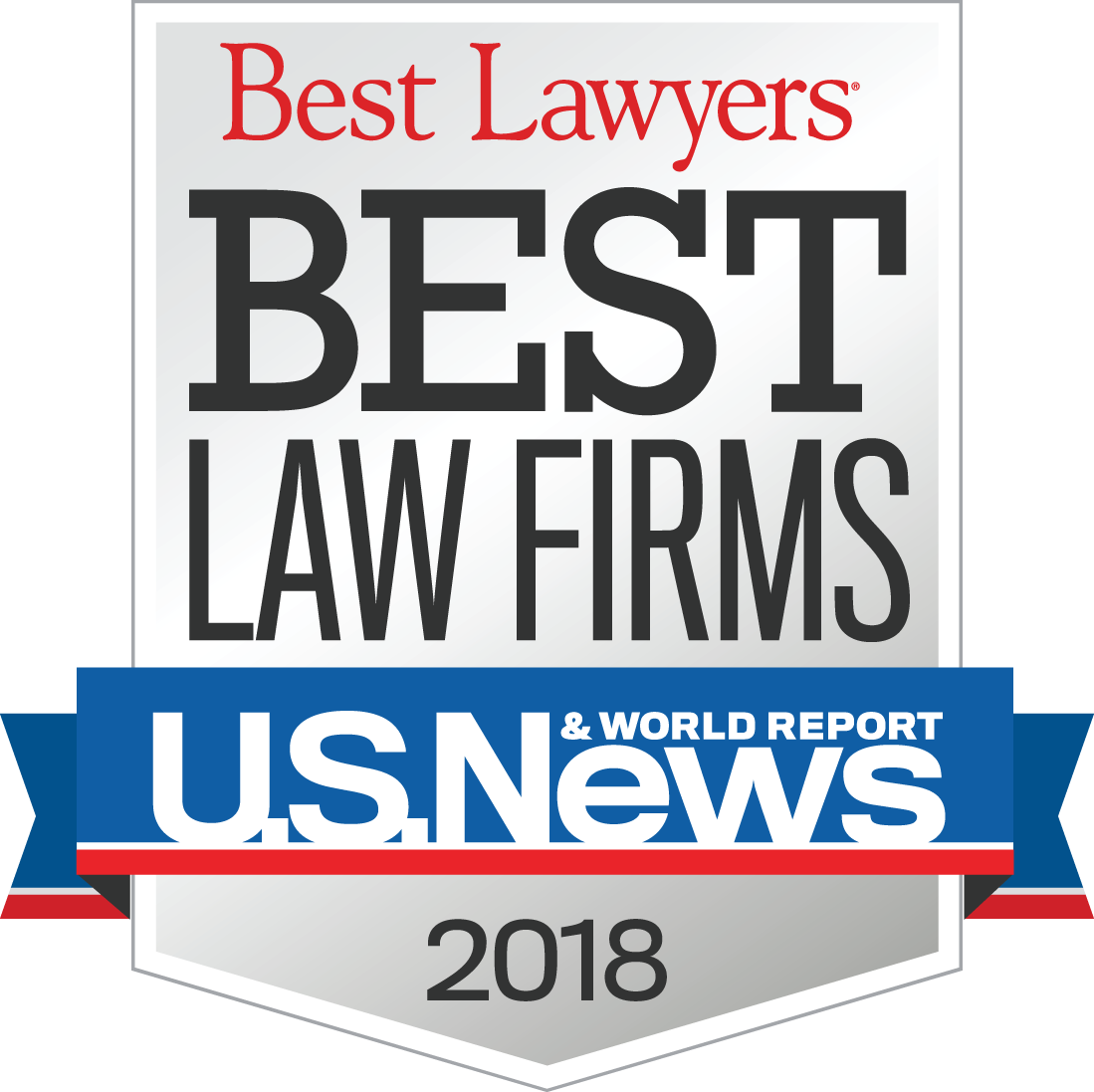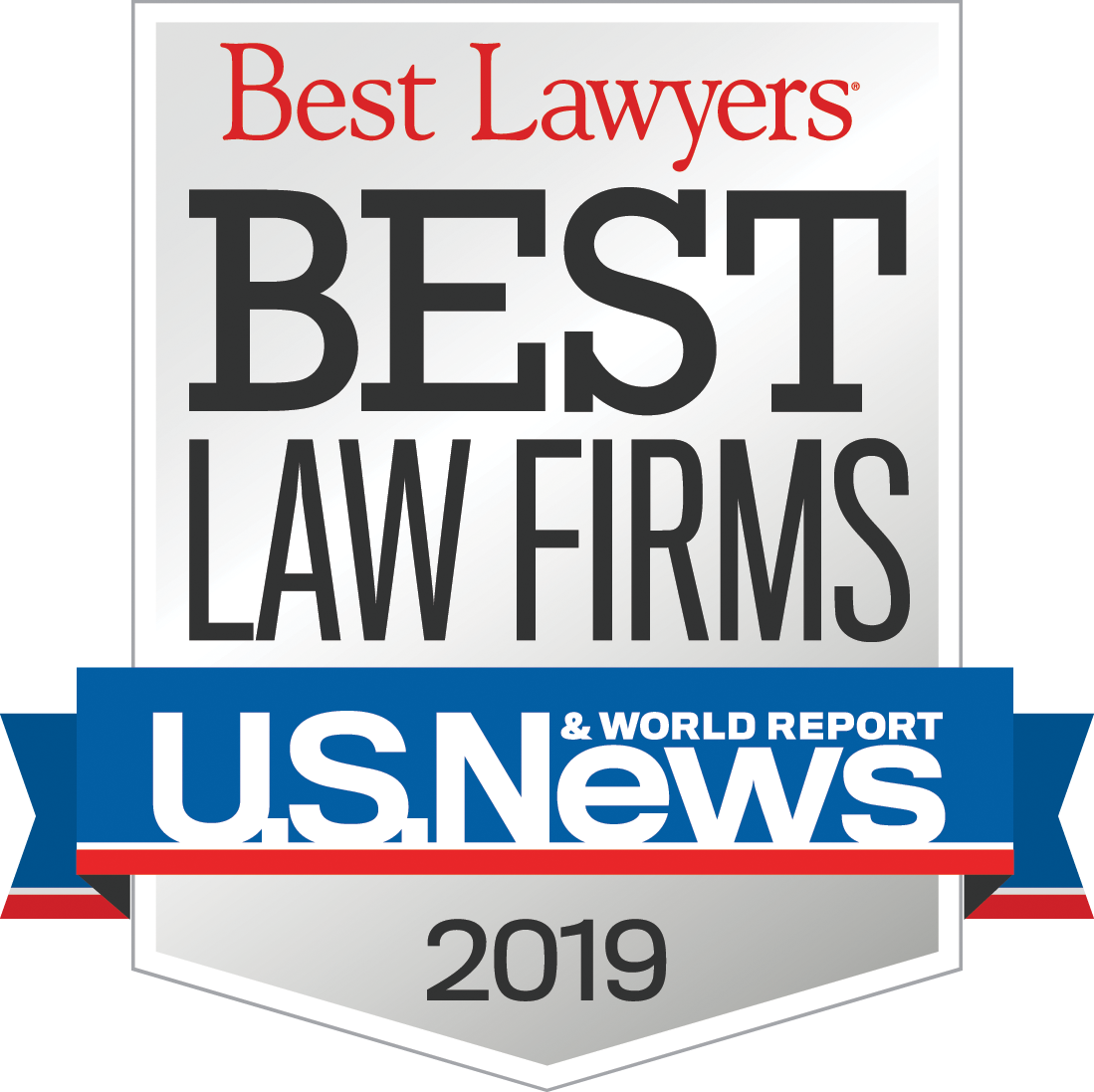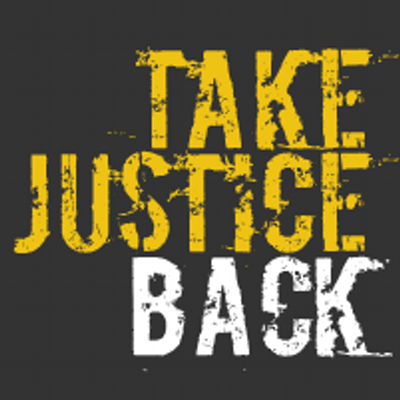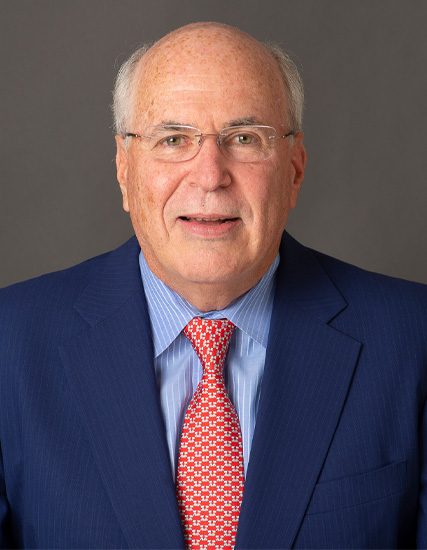

Biography
For over 40 years, clients have sought the counsel and advice of Stewart Casper for some of the most vexing problems arising from personal injury claims relating to car accidents, medical malpractice, nursing home abuse, defective products, premises liability, and workers’ compensation. He concentrates his practice on catastrophic injuries involving traumatic brain injuries, spinal cord injuries, multi-trauma injuries also known as poly-trauma, and wrongful death. He also handles bad faith claims against insurance companies.
Among the reasons that Stewart is so sought for his representation is his ability to creatively assess areas of legal responsibility for the cause of injuries, as well as his ability to devise creative solutions for proving damages to juries, thus maximizing economic damage recovery. Both in Connecticut and throughout the country, Stewart is known as a trial lawyer who will go to trial for his clients. Insurance adjusters and defense lawyers know which lawyers will take a case to verdict and which lawyers avoid trials by settling all or most of their cases.
Stewart has also been a resource for brain injury trial lawyers throughout the United States, providing advice and guidance based upon developments in neuroscience and trial strategy. Lawyers outside of Connecticut have requested that he serve as co-counsel in matters. In Connecticut, when concussion or TBI clients want a second opinion or think they want to change lawyers, Casper is the lawyer who usually gets the call. Hopefully, it isn’t too late.
Attorney Casper is particularly well-known nationally for his handling of cases involving traumatic brain injury – sometimes mischaracterized as “only a concussion.” But a concussion is a brain injury. He has mastered an approach to these cases with an unparalleled devotion to the most current scientific developments. Lawyers throughout Connecticut and the country have benefited from Attorney Casper’s scientific approach, and he has been a catalyst for teaching cutting-edge science to brain injury lawyers and validating scientific publications, both via electronic communications as well as through lectures he has given throughout the country. Casper recounts that he “attended [his] first traumatic brain injury program in 1979 and got hooked.” He further states that the only way to adequately represent “brain-injured clients is to know the science, and I will not rely on anyone else to provide me with that information.” Casper notes that he has repeatedly been asked to “take over” TBI cases from other highly-regarded trial counsel because of his relentless focus in this area. His advice has been sought for trial strategy by trial lawyers seeking to “go it alone,” often under the unfortunate circumstances where “the dye has been cast.” Casper commented that “[m]any less-experienced trial lawyers underestimate the complexity of and expense involved in bringing these cases. When there is ample insurance coverage, we may spend over $100,000 on your case, from retention through a trial that may last 3-4 weeks. And the insurance companies and defense lawyers know that we will take a trial to verdict in order to vindicate our brain-injured clients’ rights. That adds value for our clients.”
Mr. Casper was admitted to the Connecticut Bar in 1978. He is admitted to practice before the Federal District Courts for the District of Connecticut and the Southern District of New York, the Second Circuit Court of Appeals, the State Courts of New York, and the United States Supreme Court.
Attorney Casper has been a member of the Board of Governors of the Connecticut Trial Lawyers Association (CTLA) since 1987 and served on the CTLA Executive Committee continuously from 1990-2011. He was the President of the CTLA from 1996-1997. As an active leader in CTLA, he has served on numerous committees including the Legislative, Amicus Curiae, Medical Malpractice, Public Relations, and Fund Raising committees. He is one of three founding officers of the CTLA Civil Justice Foundation. He is a former member of the Motor Vehicle Automobile Insurance Coordination Committee and the Insurance Oversight Committee (Co-Chairperson) of The Association of Trial Lawyers of America™ (now the American Association for Justice, or “AAJ”). From 1999-2006, he was one of two State Delegates from Connecticut to AAJ. In 2006, he was elected by the membership of CTLA to serve on the Board of Governors of AAJ and served on AAJ’s Public Affairs Committee and National Finance Council through June 2015, when he voluntarily relinquished his positions to afford another CTLA leader the opportunity to serve Connecticut on the national board. In 2008, he was designated as a co-chairperson of a working subcommittee of AAJ’s Public Affairs Committee charged with making recommendations to deal with ERISA subrogation and Medicare Set-Aside issues. He is a member of AAJ’s Professional Liability, Motor Vehicle Collision, Highway and Premises Liability Sections, the Traumatic Brain Injury Litigation, the Medical Negligence Information Exchange, and the Spinal Cord Injury Litigation Groups. In July 2010, he was elected to serve a one-year term as the Chairperson of AAJ’s Traumatic Brain Injury Litigation Group, for which he continues to serve on the Executive Committee. From 2004-2010, he served as Editor-in-Chief of the Traumatic Brain Injury Litigation Group Newsletter. He is currently involved in ad-hoc committees, working on legal briefs and the interaction of the law and scientific research on such wide-ranging topics as advanced neuroimaging, the increased neurodegenerative risks of traumatic brain injury, and regulating defense forensic neuropsychologists who use questionable methodologies and outdated theories to minimize the damage claims of brain-injured people. Some of the titles of seminar presentations by Stewart include: “Using the Scientific Literature as Kryptonite,” Brain Injury Association of California (2022); “Scientific Basis for Poor Patient Outcomes,” Texas Trial Lawyers Association (2022); “Banking on Science, Brain Injury Association of California” (2020); “Cross-Examination of the Defense Neurologist” (2020); “Make the Defense Talk about the Science” (2020); “Litigating Concussion Cases: Science vs. Money” (2019); “Misclassification of Traumatic Brain Injury: The Pendulum Is Swinging Back” (2019); “Mining the Traumatic Brain Injury Literature” (2019); Broken Connections & Brain Networks” (2018). (For a more complete list of presentations, refer to the drop-down box below – “Classes/Seminars Taught.” )
On July 11, 2010, the leadership of AAJ recognized Stewart with AAJ’s prestigious “Distinguished Service Award.” He is a member of the Board of Directors of the Brain Injury Alliance of Connecticut (formerly the “Brain Injury Association of Connecticut”), the Brain Injury Association of America, the North American Brain Injury Society, the International Brain Injury Association, The National Spinal Cord Injury Association, The National Spinal Cord Injury Association – Connecticut Chapter, the Legal Advisory Board of the Sarah Jane Brain Foundation, the American Board of Trial Advocates, the Million Dollar Advocates Forum and Public Justice. He has been listed in The Best Lawyers in America® for both “Personal Injury” and “Workers’ Compensation” law since 1999 (selection criteria here), and he is certified as a Civil Trial Advocate the National Board of Trial Advocacy.
In 2006, Stewart was recognized in Connecticut Magazine for being a Super Lawyer in its inaugural listing, and he has retained that designation since 2006 (selection criteria can be found here. ) In January 2007, he was listed as one of the top 500 lawyers in the nation who represent plaintiffs with the publication of the “Lawdragon 500 Leading Plaintiffs’ Lawyers in America,” and the 2020 through 2024 editions of “Lawdragon 500 Leading Plaintiff Consumer Lawyers.”
The online lawyer directory and rating service, Avvo.com, currently rates Stewart with its best rating– 10 (“superb”) (Selection criteria here). Likewise, he has enjoyed the highest peer rating (AV) available to lawyers from Martindale Hubbell® (selection criteria here).
In 2015, Stewart was recognized by Connecticut’s leading publication, The Connecticut Law Tribune, for two separate Personal Injury Hall of Fame awards, and prospectively by Best Lawyers® as the 2016 Lawyer of the Year for Plaintiffs Personal Injury Litigation-Stamford.
Attorney Casper feels that if you have taken the time to read his biography, he should share the following rules with you:
- Always tell the truth;
- If you have been injured, obtain prompt medical attention; and
- Don’t assume that your selection of a health care provider is appropriate for your specific injury.

